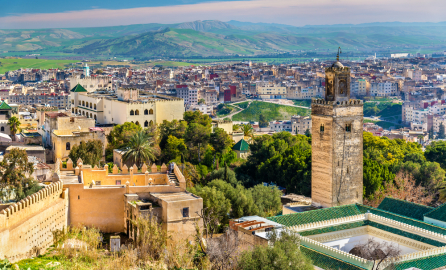The government of Morocco is engaged in an ambitious programme of public sector reform. Some eight years into the programme, experience shows that such reform is time consuming and requires cross-ministerial support and robust regulation to be successful, writes Pierre Hennebert, E4 EuropeAid in a new report.
The government of Morocco seeks to improve the quality of public services, while at the same time reducing costs to the national purse. While the reforms evolved in response to rising international competition, they are part of an overall policy of modernisation of this North African country's institutional, administrative and judicial environment.
Pierre Hennebert, who works in EuropeAid's Unit E4 (governance, security, human rights and gender) writes that government-wide support, patience and strict regulation are essential to successful reform.
"The main lessons from the Morocco experience are that a comprehensive reform needs to be embedded in all ministries to have an impact, that design of new laws, regulations and guidelines takes time and that reform should be accompanied by a robust monitoring system to make sure that it stays on track," said Mr Hennebert in the report.
The reform programme was given technical support and financed by loans of US$ 220 million from the World Bank and US$ 206 million from the African Development Bank, plus a grant of €99 from the European Union.
For more details on the priorities of the Moroccan reform programme and some lessons learned, read the full report, here.
You can also watch an interview with Fabrice Ferrandes , from the EC delegation in Morocco, who discusses the Moroccan experience further.
You can also read another related document by Mr Hennebert, which is attached to this article (below), or can be downloaded from the following link:





Log in with your EU Login account to post or comment on the platform.